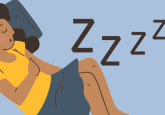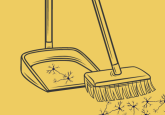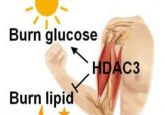Nap your way to lower blood pressure

New research suggests that napping during the daytime could help in reducing blood pressure.
It is well known that a midday nap can help to restore energy levels and improve mood; however, new research finds it may have an additional health benefit. Manolis Kallistratos, from the Asklepieion General Hospital (Voula, Greece), and colleagues have found that an afternoon snooze can lead to an average drop in blood pressure (BP) of 5mm Hg. In comparison, most low-dose antihypertensive drugs lower BP by 5–7 mm Hg.
212 people were included in the study, with a mean BP of 129.9mm Hg. The average age was 62 years old and just over half of the participants were female. The groups were similar when it came to risk factors for heart disease, the only difference being that there were more smokers in the napping group. The research team recorded and assessed the participants’ BP for 24 consecutive hours as well as noting midday sleep time, lifestyle habits (such as alcohol, coffee or salt consumption) and pulse wave velocity, a measure of artery stiffness.
“These findings are important because a drop in BP as small as 2 mm Hg can reduce the risk of cardiovascular events such as heart attack by up to 10 percent”
Having adjusted for known BP influencers such as age, gender, lifestyle and medications, the researchers found the average 24-hour systolic BP to be 5.3mm Hg lower among those who napped in comparison to those who stayed awake. The relationship between BP and napping time was linear, with each hour of sleep giving an average BP decrease of 3mm Hg.
“Midday sleep appears to lower BP levels at the same magnitude as other lifestyle changes. For example, salt and alcohol reduction can bring blood pressure levels down by 3 to 5 mm Hg,” commented Kallistratos.
Further research is needed in order to validate the findings. The authors noted that an influencing factor in their study may be the heart-healthy Mediterranean diet followed by their Grecian participants, as well as the cultural acceptance of midday napping not seen in countries such as the UK or USA.
“These findings are important because a drop in BP as small as 2 mm Hg can reduce the risk of cardiovascular events such as heart attack by up to 10 percent,” Kallistratos commented; “based on our findings, if someone has the luxury to take a nap during the day, it may also have benefits for high BP. Napping can be easily adopted and typically doesn’t cost anything.”
In prior investigations the same research team has found that napping can reduce BP and antihypertensive medication prescription for individuals with previously diagnosed high BP. This is the first study of its kind to assess the effect of napping among people with well-controlled BP.
“The higher the BP levels, the more pronounced any effort to lower it will appear. By including people with relatively well-controlled BP, we can feel more confident that any significant differences in BP readings are likely due to napping,” Kallistratos explained.
“We obviously don’t want to encourage people to sleep for hours on end during the day, but on the other hand, they shouldn’t feel guilty if they can take a short nap, given the potential health benefits,” he added.
Kallistratos presented his results at the American College of Cardiology’s 68th Annual Scientific Session (16-18 March, New Orleans, LA, USA).





